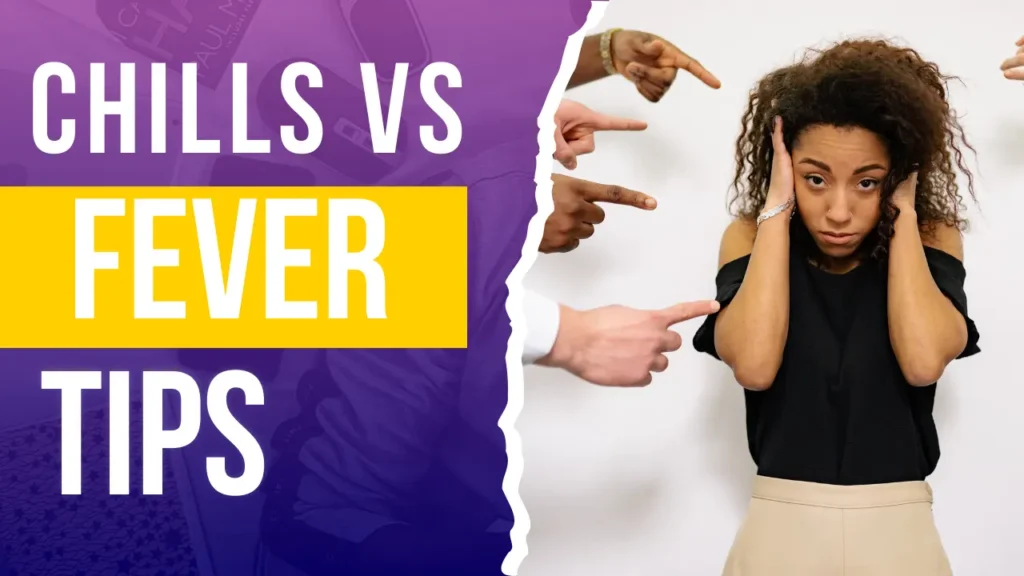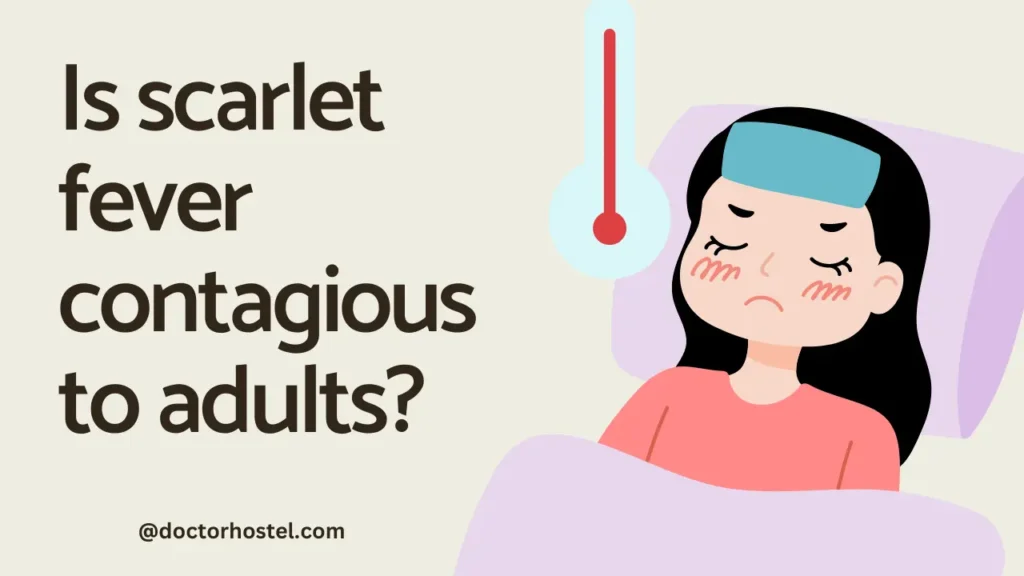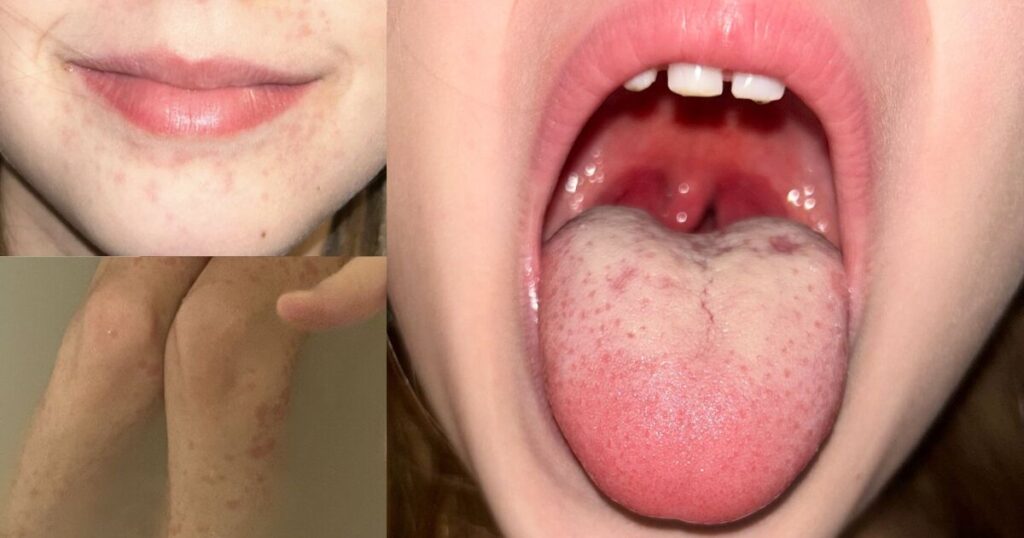
When it comes to health issues, chills vs fever are common symptoms that often occur together but have distinct differences. Understanding these differences is crucial for appropriate treatment and care. In this article, we will explore the symptoms, causes, and treatments of chills vs fever and address common questions like “Can early pregnancy cause chills and hot flashes?” and “What do chills at 38 weeks pregnant mean?”
Chills vs Fever: Symptoms and Causes
Chills Symptoms and Causes
Chills are characterized by sudden, intense feelings of cold accompanied by shivering. These shivers are the body’s way of generating heat. Common causes include:
- Infections: Bacterial or viral infections can cause chills.
- Exposure to Cold: Being in a cold environment can trigger chills.
- Medical Conditions: Conditions like hypoglycemia or hypothyroidism.
Fever Symptoms and Causes
Fever, on the other hand, is an increase in body temperature above the normal range. It is usually a sign of an underlying condition. Symptoms include:
- High Body Temperature: Generally above 100.4°F (38°C).
- Sweating: The body’s way of cooling down.
- Weakness: Feeling tired and lethargic.
Common causes of fever include:
- Infections: Like the flu or a cold.
- Inflammatory Conditions: Such as arthritis.
- Medications: Some drugs can cause fever as a side effect.
Chills vs Fever Treatment
Treating Chills
Treatment for chills focuses on addressing the underlying cause:
- Stay Warm: Use blankets and warm clothing.
- Hydrate: Drink warm fluids.
- Medications: Over-the-counter medications like acetaminophen can help.
Treating Fever
Treating a fever involves reducing body temperature and addressing the root cause:
- Stay Cool: Wear light clothing and use a fan.
- Hydrate: Drink plenty of fluids.
- Medications: Antipyretics like ibuprofen can reduce fever.
Get Access to Your Customize Keto Diet Plan and Java Burn Products
Unlock your customized Keto Diet Plan and enhance your weight loss journey with Java Burn products. Tailored to your needs for effective and sustainable results.
Pregnancy and Chills vs Fever
Can Early Pregnancy Cause Chills and Hot Flashes?
Yes, early pregnancy can cause hormonal changes leading to chills and hot flashes. The surge in hormones like progesterone and estrogen affects the body’s temperature regulation, causing these symptoms.
Chills and hot flashes during early pregnancy are usually temporary and manageable with lifestyle adjustments such as wearing layers of clothing, staying hydrated, and maintaining a cool environment.
If these symptoms become severe or persistent, it’s advisable to consult a healthcare provider to rule out any underlying issues and to receive appropriate guidance and support for managing these changes effectively.
Also read: Menopause Weight Training at Home
Cold Chills 7DPO (Days Post Ovulation)
Experiencing cold chills 7 days post-ovulation (7DPO) can be intriguing and potentially indicative of early pregnancy. During this time, the body undergoes various hormonal changes that can cause a variety of symptoms, including cold chills. Here’s a more detailed look at what this might mean:
Early Pregnancy Sign
Around 7DPO, if fertilization has occurred, the embryo is likely implanting itself into the uterine lining. This process, known as implantation, can cause subtle changes in the body. The hormone progesterone increases significantly during early pregnancy, which can affect the body’s temperature regulation, leading to sensations of cold chills. Some women may also experience other early pregnancy symptoms like fatigue, mild cramping, and breast tenderness during this time.
Not a Definitive Indicator
While cold chills 7DPO could be an early sign of pregnancy, it is not a definitive indicator. Many factors can cause chills, including hormonal fluctuations related to the menstrual cycle, infections, or even stress. It’s important not to rely solely on this symptom to determine pregnancy.
Consider Taking a Pregnancy Test
If you suspect you might be pregnant due to experiencing cold chills or other early signs, consider taking a home pregnancy test. However, it’s crucial to note that most home pregnancy tests are not sensitive enough to detect pregnancy hormones at 7DPO. Waiting until at least 10-14 days post-ovulation can yield more accurate results. For the most reliable confirmation, a blood test administered by a healthcare provider can detect lower levels of the hormone hCG (human chorionic gonadotropin) earlier than a home pregnancy test.
Also Read: keto diet for rapid weight loss
Monitoring Symptoms
Keeping a symptom diary can be helpful during the early days post-ovulation. Note any occurrences of cold chills, as well as other potential early pregnancy symptoms like nausea, breast changes, or fatigue. This record can provide valuable information to your healthcare provider if you need further assessment.
When to See a Doctor
If you experience severe or persistent chills along with other symptoms like fever, severe cramping, or unusual discharge, it’s essential to seek medical advice. These could be signs of an infection or other medical conditions that need prompt attention.
Implantation and Chills
During the implantation process, some women may experience chills. This phenomenon occurs due to hormonal changes, particularly the increase in progesterone, which can affect the body’s temperature regulation. The body’s response to the developing embryo can also trigger immune system reactions, leading to chills.
These chills are generally mild and temporary, often accompanied by other early pregnancy symptoms such as light spotting, mild cramping, or fatigue. While chills during implantation are not uncommon, they are not experienced by all women and should be monitored along with other symptoms for a comprehensive understanding of early pregnancy signs.
Chills 38 Weeks Pregnant
Chills at 38 weeks pregnant can be concerning and may stem from various causes. These chills could indicate an infection, such as a urinary tract infection or the flu, which requires prompt medical attention. Alternatively, they might be a response to hormonal fluctuations common in late pregnancy.
Given the proximity to delivery, it’s essential to consult a healthcare provider to rule out any serious conditions, such as preeclampsia or labor onset.
A proper assessment ensures both maternal and fetal well-being, addressing any issues promptly to ensure a safe and healthy pregnancy and delivery.
Chills PMS or Pregnancy
Distinguishing between chills caused by PMS and pregnancy can be challenging because both conditions involve hormonal fluctuations that can lead to chills.
PMS-related chills are typically accompanied by other premenstrual symptoms like bloating, mood swings, and breast tenderness.
Pregnancy-related chills, on the other hand, may be accompanied by early signs of pregnancy such as nausea, fatigue, and frequent urination. To clarify the cause, it’s essential to monitor other symptoms closely.
Taking note of your menstrual cycle and using a home pregnancy test can provide additional insights. Consulting a doctor for a thorough evaluation is always a good idea for accurate diagnosis and guidance
Chills 39 Weeks Pregnant
Experiencing chills at 39 weeks pregnant could indicate the onset of labor or the presence of an infection. As you near your due date, hormonal changes and the body’s preparation for childbirth can cause various symptoms, including chills.
However, it’s crucial to differentiate between normal pre-labor signs and potential complications. Immediate medical consultation is essential to determine the cause and ensure the health and safety of both mother and baby.
Prompt attention can help manage any potential risks and provide peace of mind as you approach delivery.
Bottom Line
Understanding chills vs fever is essential for proper treatment and care. While chills are often a response to colds or infections, fever usually indicates an underlying condition. Both symptoms can occur during pregnancy due to hormonal changes. If you experience persistent chills or fever, it is crucial to seek medical advice. Remember, effective treatment starts with understanding the cause.
Get Access to Your Customize Keto Diet Plan and Java Burn Products
Unlock your customized Keto Diet Plan and enhance your weight loss journey with Java Burn products. Tailored to your needs for effective and sustainable results.

